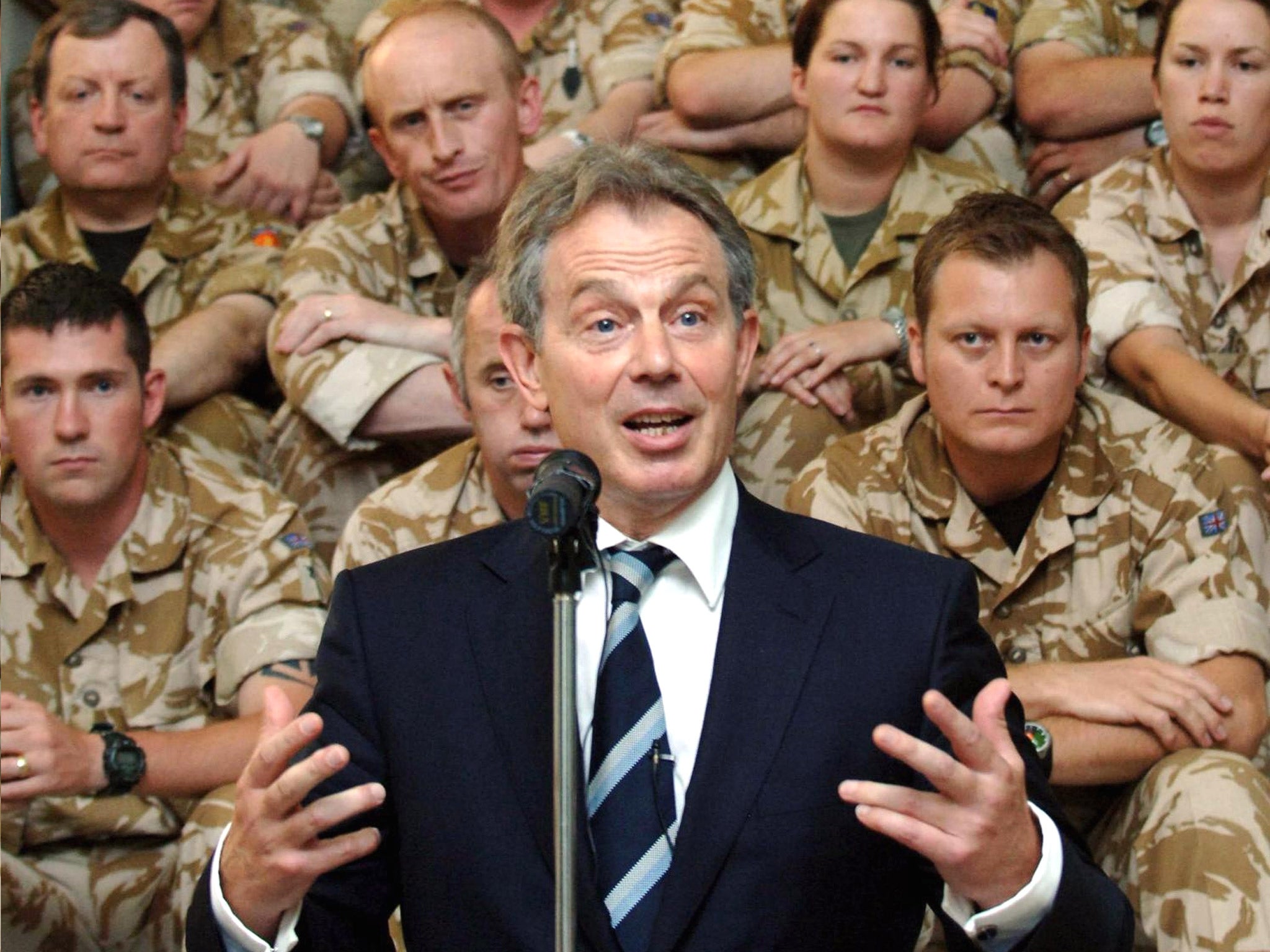Exclusive: Chilcot report into Iraq conflict will not be released until 2014 as David Cameron echoes Tony Blair with 'moral case' for war
Latest setback blamed on continuing difficulties in negotiations between inquiry team and Cabinet Office

The Iraq Inquiry, given the task of finding the “lessons that can be learned” from the military action Tony Blair ordered against Saddam Hussein, will not publish its long-awaited report until next year.
With David Cameron now preparing military action against Syria, the further delay of Sir John Chilcot’s report - supposed to “equip” future UK governments to deal with “similar situations” to the Iraq conflict – points to its immediate relevance already having been lost.
The 2014 publication date means the inquiry will now be offering judgement and insight into covert political policies and events, such as the UK’s pre-9-11 Iraq strategy, a full 14 years after they took place.
The Independent has learned that continuing difficulties in the negotiations between the inquiry team and the Cabinet Office over how much disclosed material can be made public in the report, has contributed to the push-back.
The first group of individuals criticised in initial drafts of the report have only just been sent letters aimed at giving them the opportunity to respond to inquiry’s finding.
Downing Street were recently told by the inquiry that a second tranche of similar letters will follow shortly, with responses expected from those criticised by the end of October.
The letters timetable, plus on-going disclosure problems linked to protected correspondence belonging to three US presidents, Bill Clinton, George W Bush and Barack Obama, has, according to inquiry sources, made the delivery of a final draft this year “highly unlikely.”
Although a detailed examination of the close relationship between President Bush and Mr Blair is regarded as the key that would unlock and challenge the official verdict of the run-up and aftermath of the Iraq conflict, new material supplied by Gordon Brown and Mr Obama has also been examined by the inquiry.
The Brown administration’s desire to seek “closure” on the Iraq war and to recapture disaffected Labour support, led the former prime minister to announce in June 2009 that an inquiry would be conducted to “identify lessons that can be learned from the Iraq conflict”.
Four previous investigations had already taken place, including Lord Hutton’s inquiry into the death of the weapons expert, David Kelly. However there remained widespread unease that the combined investigations still failed to uncover the full facts.
Earlier this year The Independent reported that the final report would authoritatively challenge “previous accounts of what had happened” in 2002 and 2003 when Mr Blair ordered 45,000 troops into Iraq to aid the US-led overthrow of the Saddam regime.
Sources pointed to senior figure in Whitehall and others no longer operating at the centre of UK politics, being “unnerved” by a report which confronted the Blair government’s account and justification for removing Saddam.
Chaired by Sir John Chilcot, a former diplomat who had previously investigated intelligence on Iraq’s alleged weapons-of-mass-destruction (WMD) as part of the Butler Review, the inquiry held public hearings from the autumn of 2009 to February 2011. Its terms of reference included the UK’s strategy towards Iraq from 1990, the impact of 9-11, the UK’s understanding of Iraq’s WMD capability, and the planning for a post-Saddam Iraq.
A critical insight into the military and political background behind the 2003 Iraq war, was expected to be a crucial part of the report, likely to influence the conduct of future UK governments.
Events in Syria and Britain’s anticipated role in action against the Assad regime, has exposed the consequences of the inquiry taking almost four years to deliver a verdict.
It is expected the final bill for the inquiry will be over £8 million.
Join our commenting forum
Join thought-provoking conversations, follow other Independent readers and see their replies
Comments
Bookmark popover
Removed from bookmarks